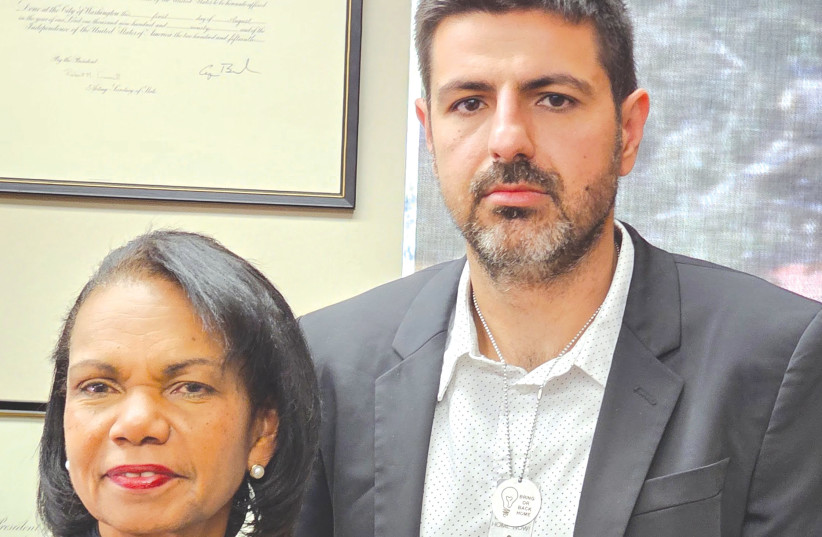My recent mission with ISRAEL-is and AJC to San Francisco and Silicon Valley was a poignant journey into a region marred by a distressing level of antisemitism and anti-Zionism.
Upon arrival, the stark denial of the October 7 atrocities was palpable, despite it being one of the most documented massacres in history.
Gaza protesters took over San Francisco International Airport as I landed, erupting the peace of passengers and the functioning of the airport.
I soon came to understand that these were the norm: disruption in public places, universities, and especially strategic disturbances in over 100 municipalities across the Bay area, calling for a ceasefire and accusing Israel of genocide, quoting unreliable Gaza health authorities sources that are controlled by Hamas terrorist regime.
Pro-Palestinian protests underscore the need for advocacy
These incidents underscore the urgent need for advocacy and awareness, especially regarding the human stories of families affected by hostage situations.

These tragedies must remain at the forefront of the global agenda, ensuring they are not forgotten and prompting action wherever necessary.
We brought Michael Levy from Israel, a man on a relentless mission since October 7 to secure the freedom of his younger brother, Or, who was kidnapped from the Supernova festival. Michael’s account of the events was profoundly moving.
Or and his wife Einav had barely arrived at the festival before the onslaught of rocket fire from Gaza forced them and 24 others into a cramped bomb shelter.
Tragically, the shelter became a scene of horror as Hamas terrorists attacked, hurling grenades and opening fire. Despite the heroic efforts of individuals like Aner Shapiro, who courageously deflected seven grenades, the outcome was devastating.
Eighteen lives, including Einav’s and Aner’s, were brutally cut short, leaving Or and others hostage. Or’s haunting last words to his mother encapsulate the unimaginable terror they faced: “Mom, you do not want to know what is happening here...”
The aftermath of this tragedy reverberates deeply, particularly for Or and Einav’s two-and-a-half year old son, Almog, now growing up without his parents. Michael recounts the heart-wrenching task of explaining to Almog why his mother will never return – a task made all the more agonizing by the uncertain fate of his father.
To keep Or’s memory alive and honor his nephew’s plight, Michael carries with him Almog’s teddy bear and Or’s shirt – tangible reminders to him of his mission, in moments of despair. His resolve stems not only from the love of his younger brother but, more importantly, from Almog, awaiting his father’s safe return.
Our interactions extended to influential figures in Northern California, including consular representatives, mayors, academic leaders, and even former US secretary of state Condoleezza Rice, who was criticized by protesters on campus, who were calling on Stanford to divest from Israel, especially regarding the “Israel-Gaza war.”
Dr. Rice told us that she will keep on reminding everyone who calls for an immediate ceasefire about the October 7 atrocities against innocent Israeli civilians. She compared October 7’s surprise attack to 9/11 and Hamas to Al-Qaeda – both terrorist organizations devoid of humanity in their actions.
YET, AMID the somber narrative, there emerged a glimmer of hope – the unwavering support of the Indian community for the Jewish community and Israel.
Their vocal solidarity stands as a beacon of unity in the face of adversity. They marched proudly along with 10,000 Jews and Israeli supporters a few weeks earlier in the streets of San Francisco, calling out discrimination and antisemitism.
Reflecting on this experience, I am compelled to advocate for action, particularly in educational settings. The insidious influence of extremist ideologies, exemplified by mandatory ethnic studies programs in California, underscores the urgency of engaging with young minds to counter misinformation and promote tolerance.
While challenges persist, the resilience of communities and allies offers renewed determination to confront and overcome hatred.
The writer is foreign affairs manager at the ISRAEL-is NGO.
